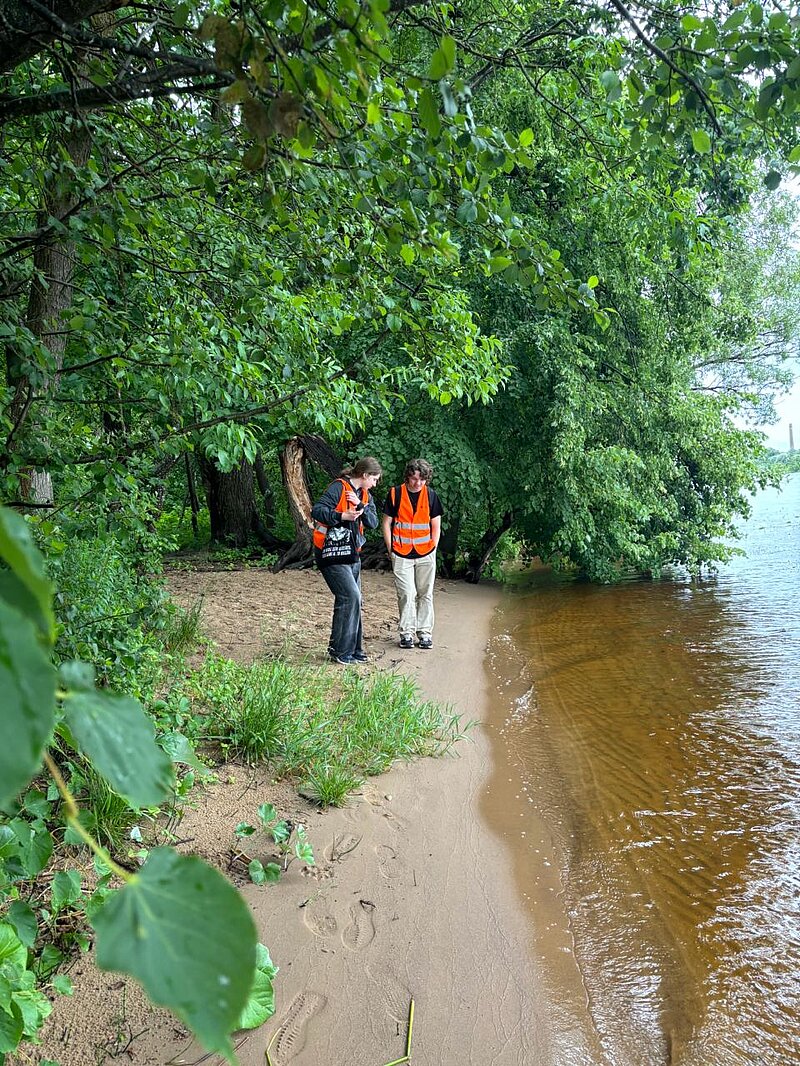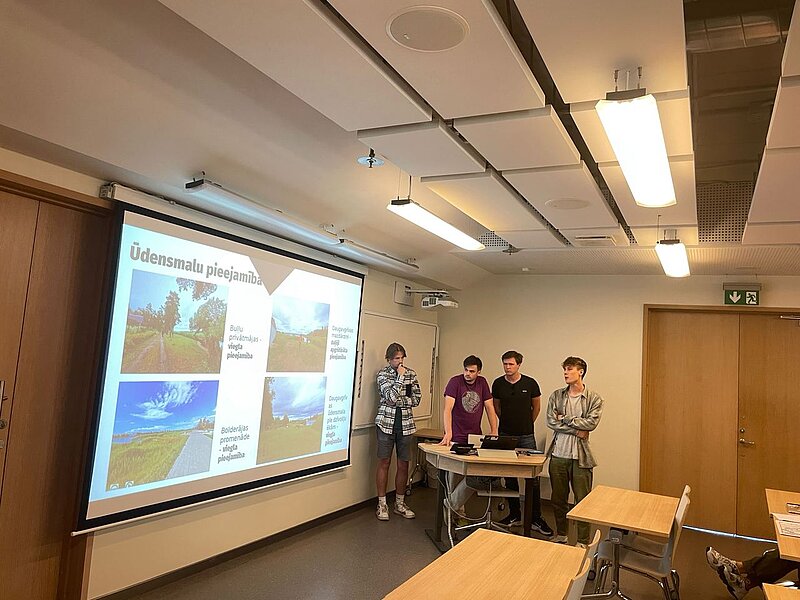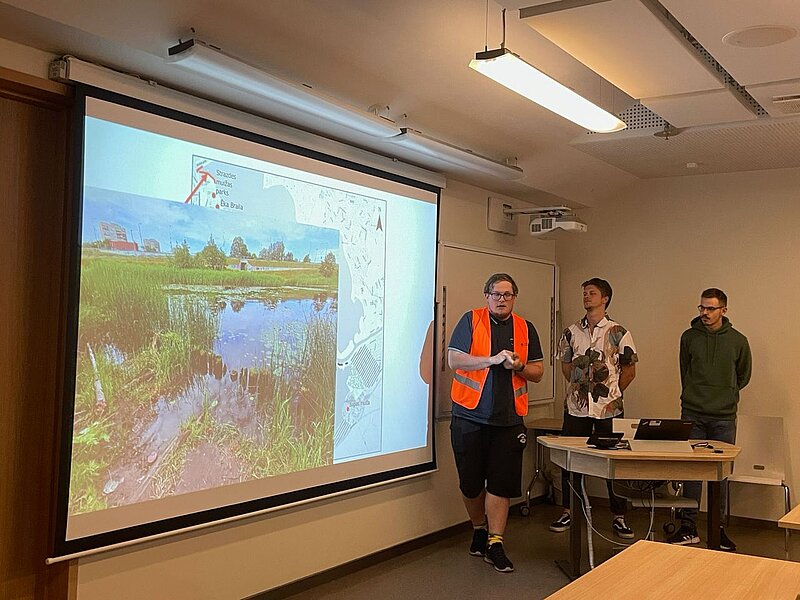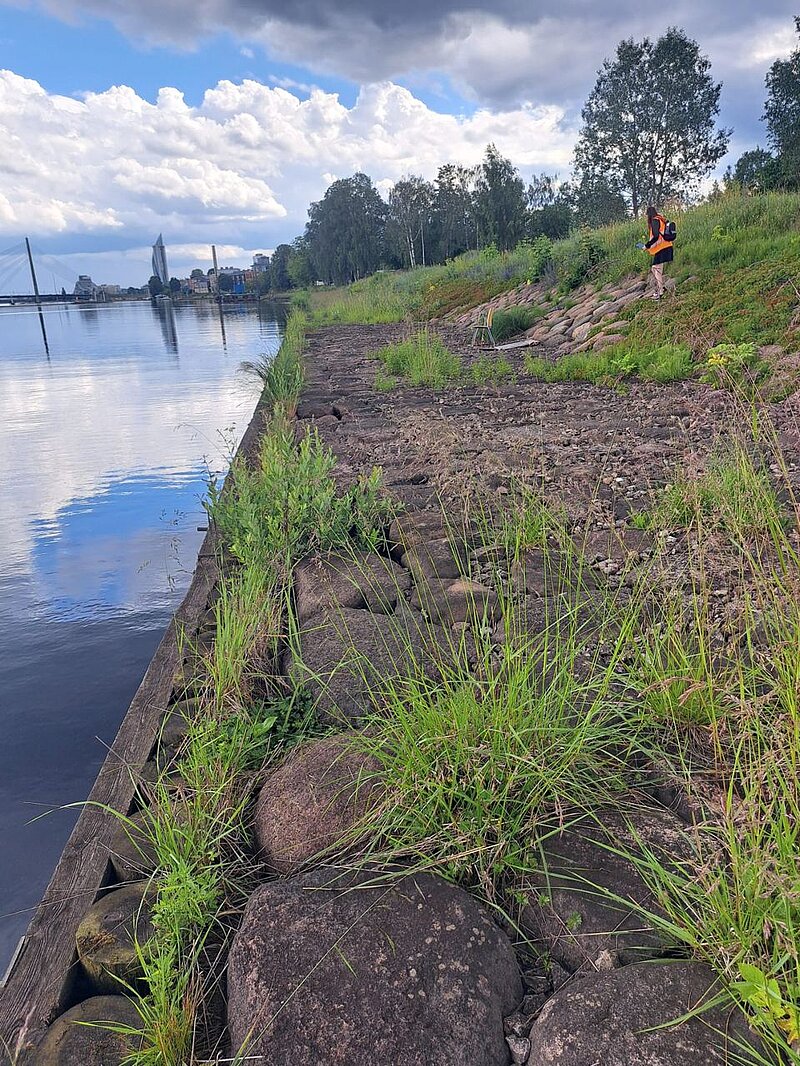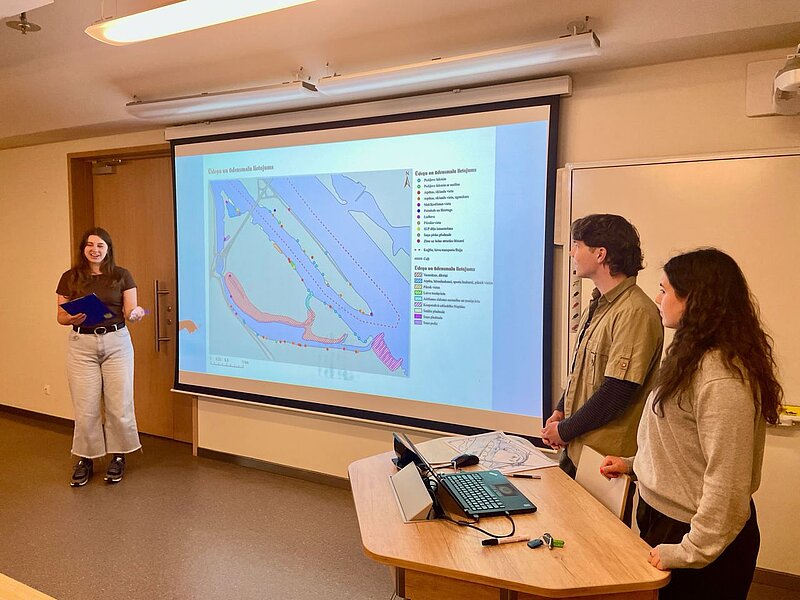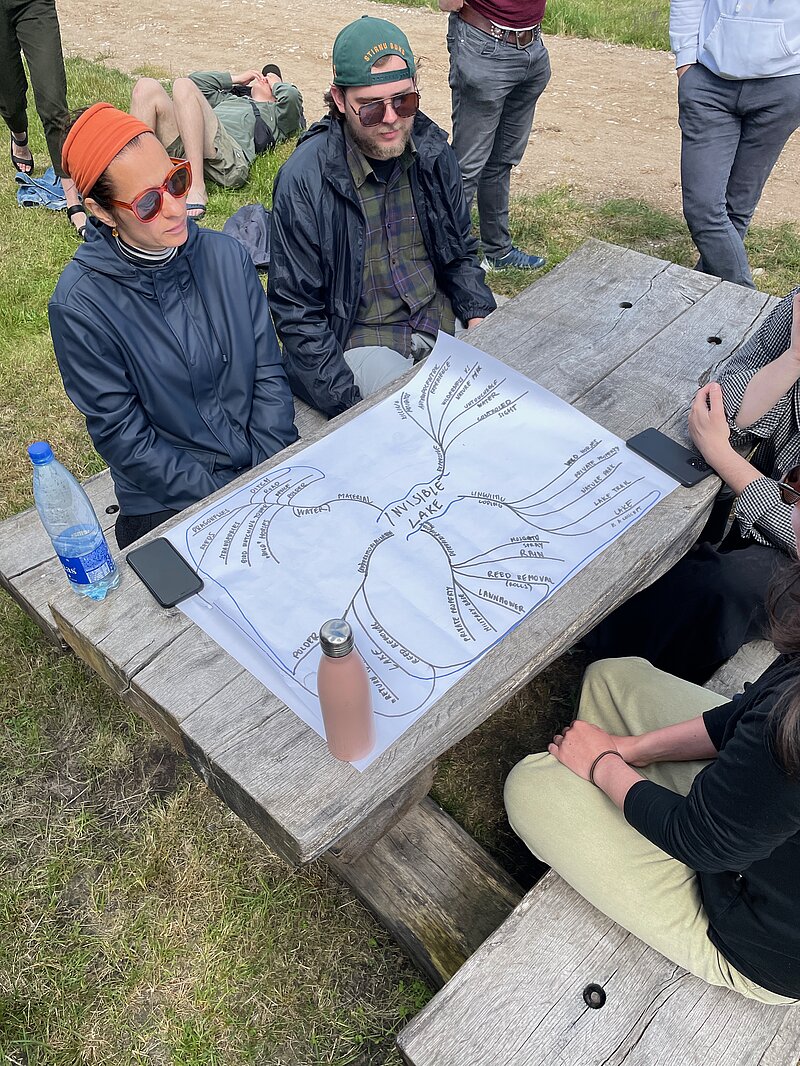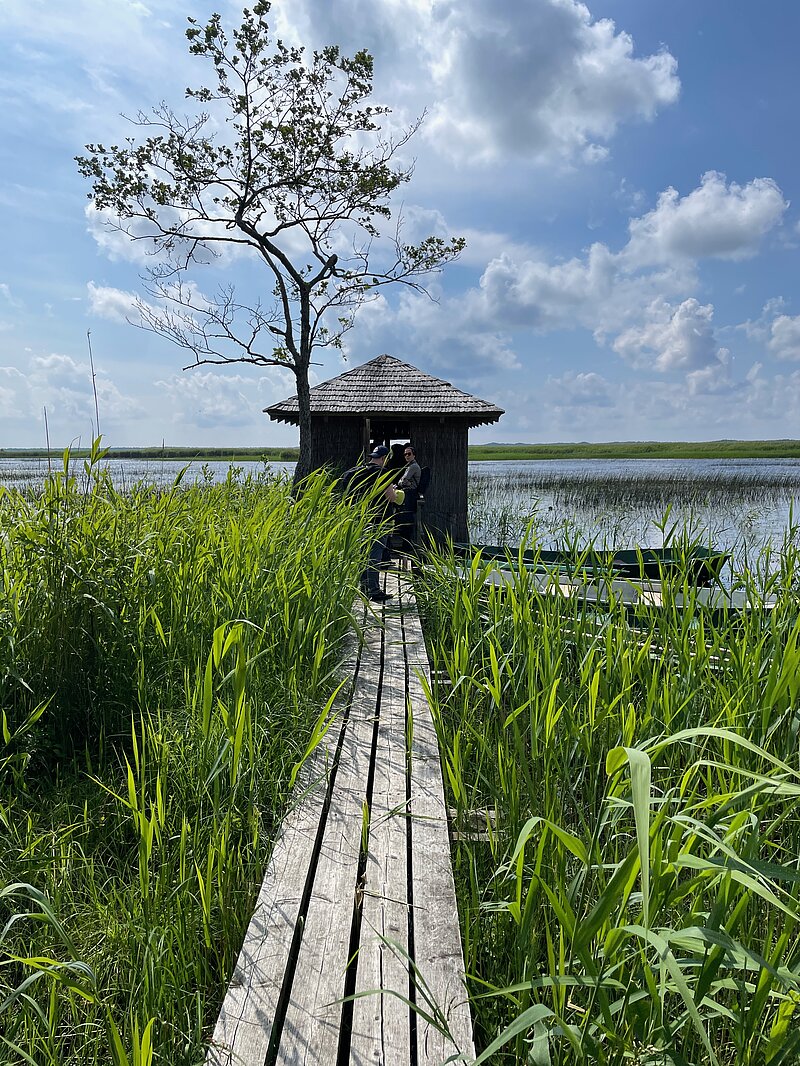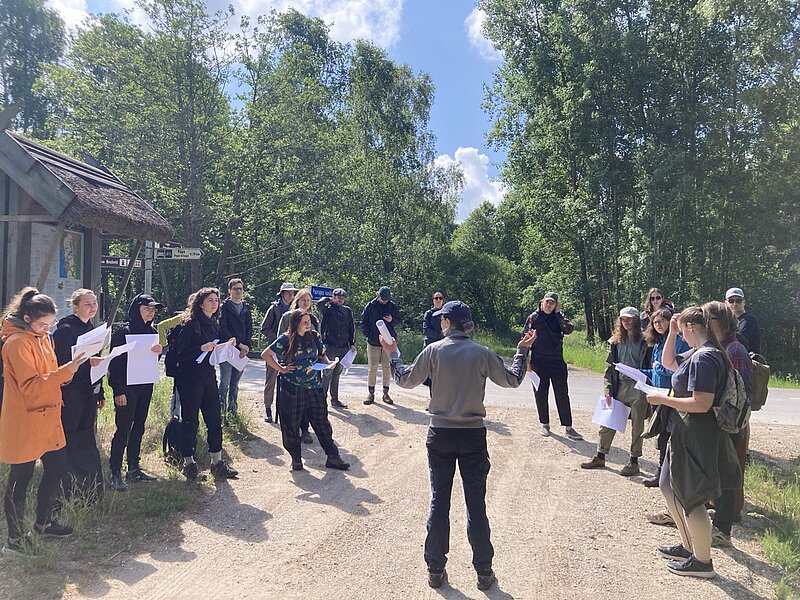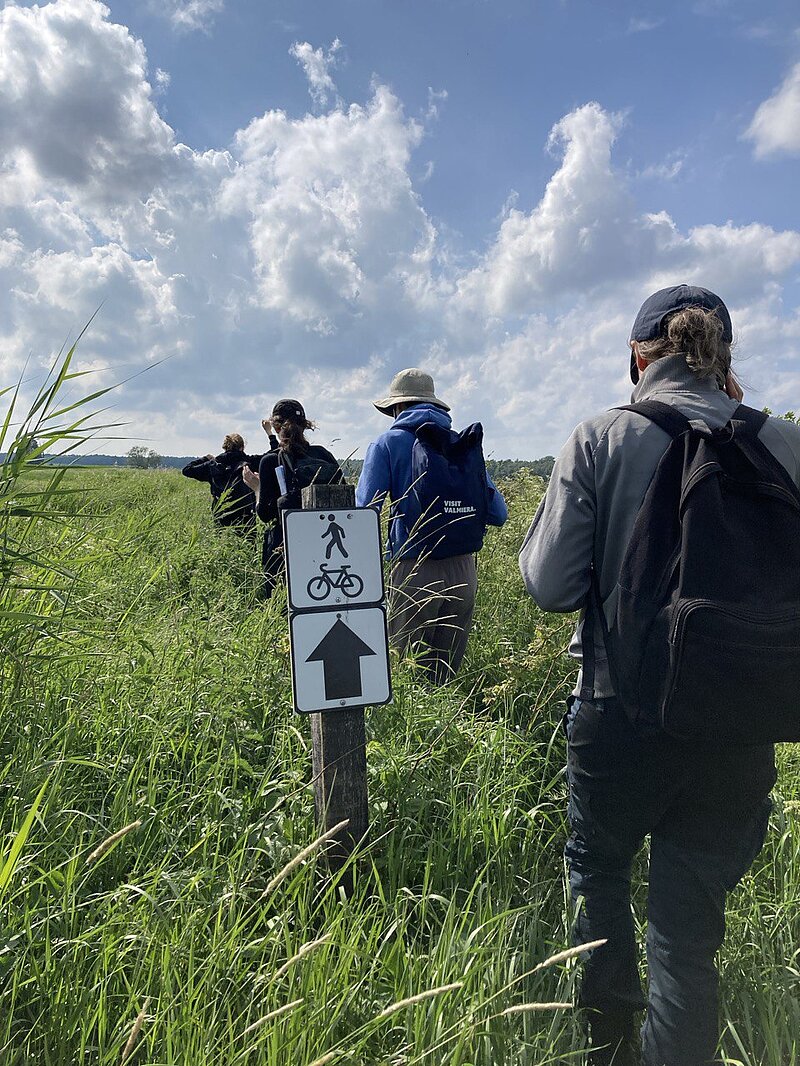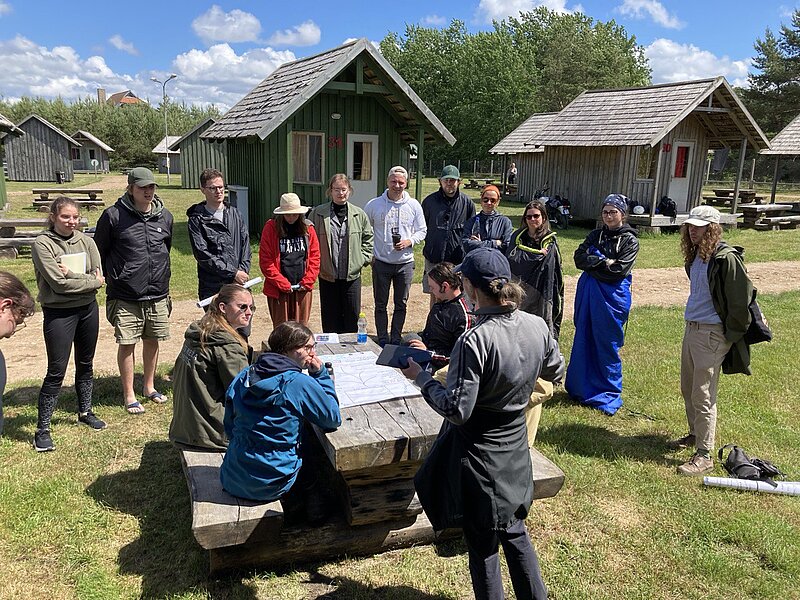Field methods in Geosciences II
The theme of the Watercultures project, human-water relations, was incorporated into the Bachelor of Geography field course Landscape Geography (which forms part of the Field Methods in Geosciences II, Geog1091). During the course, which took place between 18 and 22 June, students conducted a survey of Riga's waterfronts, including Lake Jugla and the Jugla Canal, Buļļupe, Lucavsala and Zaķusala, the Zunda Canal, and Ķīpsala. The survey involved the observation and mapping of various aspects of water and waterfront accessibility, waterfront types, historical landscape changes, and different practices related to the use of waterscapes. The concluding phase of the study comprised a presentation of the findings and a discussion on the planning of blue-green infrastructure in the studied waterfronts.
The course was led by the project participants, Associate Professor Anita Zariņa and Senior Researcher Ivo Vinogradovs.
Field studies in the course 'Contemporary approaches to Studies of Places and Environment'
How does water form assemblages? How does water agency affect the relations between people and water? These and other questions were explored and discussed in the Geography Masters course Contemporary approaches to Studies of Places and Environment (SDSKM049), which brought together students from the Environmental Science and Philosophy Masters programmes, as well as Erasmus students from Germany and Finland (21 students in total).
The field part of the course, which took place from 7 to 9 June in the Pape Nature Park, integrated the themes of the project, focusing also on different aspects related to the relationship between man and water. By walking around Lake Pape and through the landscapes of the village of Pape Koniņi and the Baltic Sea, the students focused on sensory experience, affective mapping, psychogeographic drift, more-than-human agency, as well as water management and nature conservation practices.
The course was led by the project participants - Associate Professor Anita Zariņa, Assistant Professor Anne Sauka and PhD student Karīna Ješkina.

 CONFERENCE
CONFERENCE